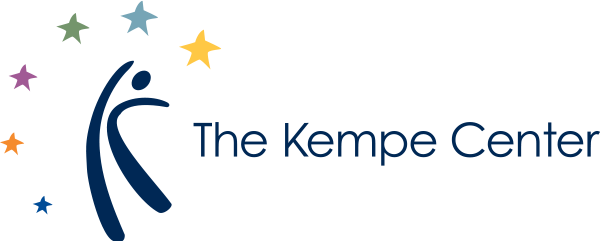ProgramPages
RelatedLinks
FGDM Research Projects
Kempe-Led Evaluations on Family Group Decision Making
No Place Like Home
Found, Engaged, and Connected
Permanency From Day 1
Enhanced Family Conferencing Initiative
No Place Like Home
No Place Like Home: Family Group Decision Making for Children and Families Receiving In-Home Services
View Final Report
Funder: U.S. Health and Human Services, Administration for Children, Youth and Families, Children’s Bureau
A federal grant awarded to the American Humane Association (AHA), Casey Family Programs (CFP) and three innovative child welfare agencies with mature family group decision making (FGDM) programs to test the effectiveness of FGDM in safely preventing children from entering or re-entering foster care when they are receiving in-home services. The grant was transferred to the Larimer County Department of Human Services with the Kempe Center as the primary operating entity responsible for evaluation and technical assistance. The project sites are Larimer County Department of Human Services (LDHS), Colorado; South Dakota Department of Social Services (SDDSS); and Texas Department of Family and Protective Services (TDFPS). All three sites will participate in a rigorous evaluation (experimental or quasi-experimental), longitudinal designs addressing FGDM process, outcomes and cost effectiveness.
Resultant peer-reviewed publications
Maher, E., Allan, H., Merkel-Holguin, L., and Corwin, T. (Accepted, 2016). Using multi-site experimental and quasi-experimental designs to evaluate a common practice in child welfare. SAGE Research Methods.
Hollinshead, D., Corwin, T., Maher, E., Merkel-Holguin, L., Allan, H., and Fluke, J. (2017). Effectiveness of Family Group Conferencing in Preventing Repeat Referrals to Child Protective Services and Out-of-Home Placements. Child Abuse and Neglect, 69, 285-294. DOI information: 10.1016/j.chiabu.2017.04.022
Allan, H., Harlaar, N., Hollinshead, D., Drury, I., and Merkel-Holguin, L. (2017). The Impact of Worker and Agency Characteristics on FGC referrals in child welfare. Children and Youth Services Review 8, 229-237.
Merkel-Holguin, L., Schwab-Reese, L., Drury, I., Allan, H., and Hollinshead, D. (2019). Nothing About Me, Without Me: Children’s Experiences with Family Group Conferences. Child and Family Social Work.
Corwin, T. W., Maher, E. J., Merkel-Holguin, L., Allan, H., Hollinshead, D. M., & Fluke, J. D. (2020). Increasing social support for child welfare-involved families through family group conferencing. The British Journal of Social Work. Advanced online publication. https://doi.org/10.1093/bjsw/bcz036
Found, Engaged, and Connected
Found, Engaged and Connected for Olmsted County’s Most Vulnerable Youth
View Final Report
View Final Report Appendices
Funder: U.S. Health and Human Services, Administration for Children, Youth and Families, Children’s Bureau
A federal grant awarded to Olmsted County Community Services to test the effectiveness of blending family group decision making and family finding for families involved with child welfare. Kempe conducted the implementation, outcome and cost evaluation of this program in Rochester, MN.
Permanency From Day 1
Permanency From Day 1
Project Description
The Permanency from Day One Grant (PFD1) project is funded by a $7.7 million cooperative agreement awarded to Washington State in 2018 by the Children’s Bureau. Washington State was one of just five states chosen for this grant and is the only public child welfare agency chosen as a grantee. This five-year grant began in October of 2018 and will end Sep. 30, 2024, after being awarded a one-year no cost extension.
The PFD1 project utilizes a data-driven approach to align and support the Program Improvement Plan (PIP) and Court Improvement Plan (CIP) while seeking to ameliorate systemic barriers to permanency for children and youth in Washington’s child welfare system by facilitating engagement between workers and families, including parents, youth, and extended kin. Through this increased engagement the project strives to achieve greater child and family involvement in case planning which will result in individualized case plans that meet the needs of children and families. Further, by engaging a wider family network earlier, the project seeks to increase the likelihood of permanent placements with kin. A rigorous and comprehensive external evaluation of the interventions is being conducted by the Kempe Center at the University of Colorado.
- There are two target populations for the Permanency From Day One grant interventions:
All families/cases in the intervention offices for whom a child/youth has become dependent during the intervention period. - All “legally free” youth, statewide, who are not in their permanent home and are developmentally able to participate in choosing their potential permanent home.
Intervention #1 – Enhanced Permanency Planning Meetings
The first grant intervention is a random control trial that will provide Enhanced Permanency Planning Meetings for some Child and Family Welfare Services (CFWS) cases in offices participating in the grant. Eligible cases will be run through a randomization tool to determine if they will receive the Enhanced Permanency Planning Meetings or the office’s ‘business as usual’ permanency planning meetings.
Enhanced Permanency Planning Meetings will be scheduled, facilitated and documented by a neutral facilitator embedded in each intervention office, provided by the grant. This intervention will include an expedited timeline such that the first meeting will occur within 30 days of the establishment of dependency. Each successive meeting will occur within 90 days of the previous meeting. Meetings will continue to occur every 90 days throughout the life of the case until it is dismissed by the court.
Hypothesized benefits of Enhanced Permanency Planning Meetings include:
- Increased understanding of the dependency process.
- Clarification on roles and responsibilities.
- An increase in kinship placement and family connections.
- Inclusion and teaming.
- Increased accountability.
Intervention #2 – Enhanced Youth Recruitment
The second grant intervention is Enhanced Youth Recruitment (EYR). This intervention will add to the ways in which DCYF recruits permanent homes for youth. The EYR strategy includes reverse matching, where profiles of foster parents will be shared with youth, allowing youth to help identify the family with whom they would like to live. EYR will have three reverse matching events each year. Matching events may be held virtually due to COVID.
EYR will also add a “recruitment plan” for each child needing recruitment of a permanent home. This plan will be documented in FamLink. DCYF case workers will continually update the court about the efforts DCYF is making to recruit permanent homes for the youth on their caseload.
Hypothesized benefits of EYR are:
- Garnering buy-in from foster youth who will have more choice in their future family.
- Increased ability for transparency and accountability for DCYF recruitment duties.
- Creating new opportunities for foster families to put profiles out for review will increase matching.
- Finalizing more permanent plans for foster youths and thereby shortening their length of stay.
Enhanced Family Conferencing Initiative
Enhanced Family Conferencing Initiative
View Final Report
Funder: Subcontract from New York City ACS, via U.S. Health and Human Services, Administration for Children, Youth and Families, Children’s Bureau
Three-year federal grant to study a family conferencing program implemented by the Administration for Children’s Services in the Bronx, New York. In addition to supporting evaluation design, provide coaching and training services to child welfare workforce.
Resultant peer-reviewed publications
Lalayants, M., DePanfilis, D., Merkel-Holguin, L., Baldwin, M., Schmidt, M., Treinen, J., Zuñiga, D., Mackereth, C. and Anderson, T. (2021). Building evidence for family group decision-making in child welfare: operationalizing the intervention. Journal of Public Child Welfare. 10.1080/15548732.2021.1891185.
Lalayants, M. & Merkel-Holguin, L. (2023). Adapting Private Family Time in Child Protective Services Decision-Making Processes. Child & Family Social Work. 1-11. https://doi.org/10.1111/cfs.12999



